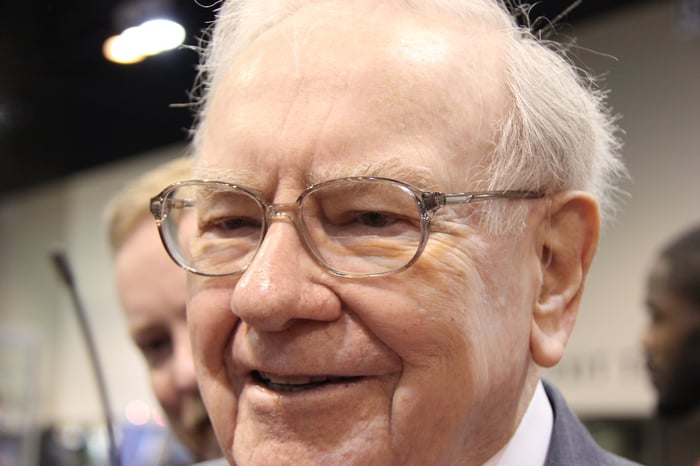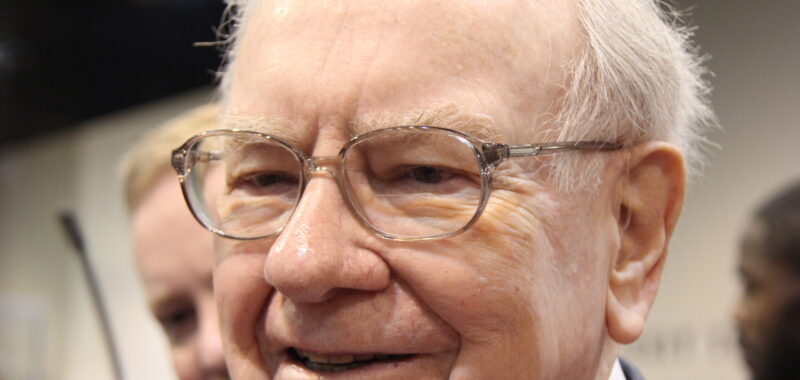Folks from around the world flocked to Omaha to attend Berkshire Hathaway‘s (BRK.A 1.99%) (BRK.B 1.76%) annual meeting, snack on See’s Candies, and sip on ice-cold Coca-Cola. But there’s a lot more to the annual tradition than sweets and soda.
From 1965 to 2024, Berkshire averaged a compound annual gain of 19.9% compared to 10.4% for the S&P 500 (^GSPC 1.47%). Strong returns, paired with nearly 95 years of wisdom from the “Oracle of Omaha,” provide invaluable insight on the stock market, economy, businesses, and life.
Here are some key takeaways from Buffett’s responses during the meeting’s question-and-answer (Q&A) portion and how they could impact what Berkshire does next.

Image source: The Motley Fool.
Tariffs are bad for trade
Tariffs were at the forefront of Berkshire’s annual meeting. The Q&A session wasted no time discussing the topic, with Buffett saying that “trade should not be a weapon.”
Later in the meeting, Buffett discussed how the U.S. has long benefited from trading with the rest of the world, allowing it to sell what it does best to a larger pool of buyers.
Despite his negative stance on tariffs, Buffett held firm in his beliefs in the U.S. economy’s competitive advantages, saying that it is a great time to be born in the U.S.
In response to a question on whether the current policy of American exceptionalism would fundamentally change investment opportunities, Buffett said, “America has been in significant and revolutionary change ever since it was developed.”
Buffett discussed how the U.S. has been through all kinds of challenges, from recessions to the threat of nuclear war, and more, and that none of that has ever taken away from America’s role as the land of opportunity. “If I were being born today, I would keep negotiating in the womb till they said you could be in the United States,” said Buffett.
In sum, Buffett is against tariffs, but tariffs aren’t so bad that they change his American investment philosophy.
Limiting emotion in response to volatility
The same tone carried into Buffett’s discussion of market volatility. Berkshire’s cash position reached record levels in the first quarter of 2025. But those results are only as of March 31. Most of the recent market volatility came after President Trump’s “Liberation Day” on April 2.
An audience member asked if April’s market fluctations changed Berkshire’s stance on its cash position, to which Buffett responded, “What has happened in the last 30, 45, 100 days — whatever you want to pick, is really nothing.”
Buffett then discussed three times in Berkshire’s history when the stock went down by over 50%, and every time, nothing was fundamentally wrong with Berkshire as a business. So, by comparison, recent volatility isn’t a big deal.
Buffett went on to say that we aren’t in a dramatic bear market compared to other periods and that people think there has been a significant change in markets when there hasn’t been. “When the market goes up 15%, they take it with remarkable grace,” said Buffett. But if the market goes down by 15%, there is panic and speculation. Meaning investors don’t need a reason for the market to go higher, but they seem to when it falls. “People have emotions, but you got to check them at the door when you invest,” said Buffett.
The end of an era
Year after year, the greatest takeaway from Berkshire’s annual meeting continues to be Buffett’s conviction in his principles and the leadership that has gradually been entrusted with more responsibility.
Toward the end of the meeting, Buffett said he would ask Berkshire’s Board of Directors to appoint Greg Abel as CEO by the end of the year. Abel was named Buffett’s successor years ago, but few thought he would be taking over as CEO so soon.
While Buffett clearly believes that Abel shares similar principles, it remains to be seen what impact a new CEO will have on Berkshire’s capital allocation strategy and cash position. However, Buffett assured that he would continue coming into the office every day, and that he’s around to help if a major investment decision needs attention.
The 60-year era of Warren Buffett as CEO of Berkshire Hathaway may be drawing to a close, but there will always be the digital tomes of shareholder letters, recordings, and musings for investors to turn to when seeking insights from one of the best to ever do it.

